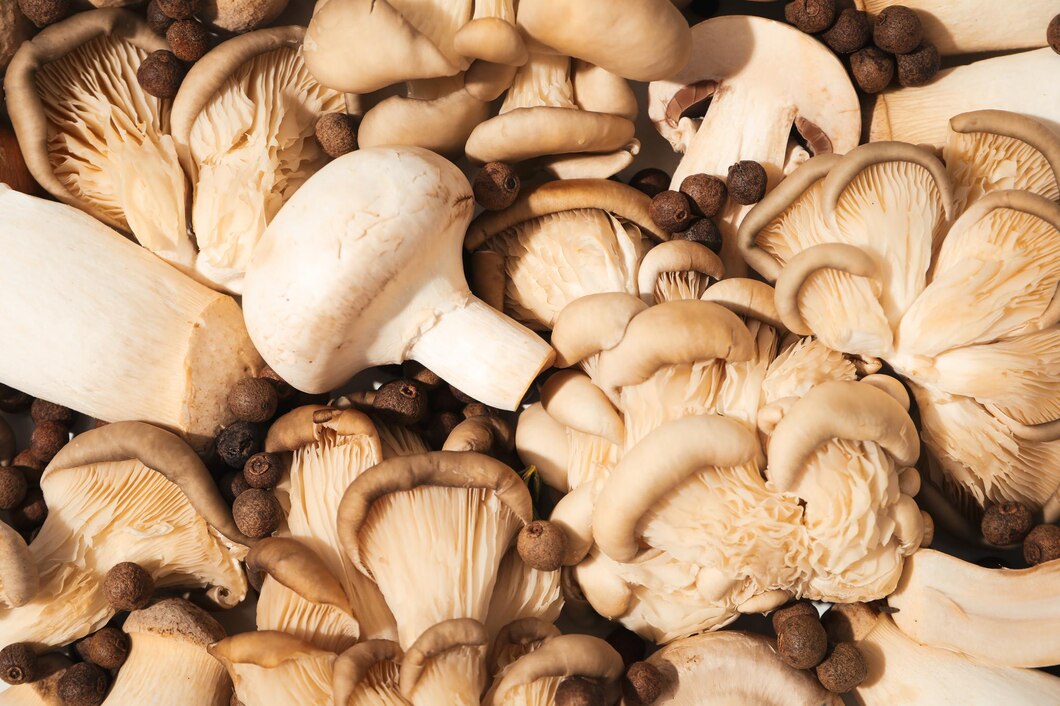South Africa’s diverse landscapes provide a rich variety of foods, but some come with hidden dangers. While most are safe to consume, certain foods can become toxic under specific conditions, whether due to environmental contamination, improper preparation, or naturally occurring toxins. Here are 10 foods that can be poisonous in certain regions of South Africa.
1. Cassava (Manioc)
Cassava, a root vegetable commonly consumed in some rural areas, contains cyanogenic glycosides, which can release cyanide when consumed raw or undercooked. In regions where cassava is a staple, improper preparation can lead to cyanide poisoning, causing symptoms like dizziness, headache, and in severe cases, death.
2. Mushrooms
South Africa has a variety of wild mushrooms, but some species are highly toxic. Amanita phalloides, also known as the “death cap,” can be mistaken for edible varieties. Consuming this mushroom can result in severe poisoning, including liver damage or death. Mushroom foraging is popular in regions like the Western Cape, but great care is needed.
3. Ackee Fruit
Ackee fruit, introduced in South Africa from the Caribbean, contains hypoglycin A, a toxin that can cause vomiting, hypoglycemia, seizures, and even coma if eaten when not fully ripe. Though not widely consumed, it has become more common in some urban markets, and its handling needs caution.
4. Rooibos Tea (Contaminated with Heavy Metals)
Rooibos tea is a beloved South African staple, but if grown in regions with contaminated soils, it can absorb heavy metals like cadmium or lead. Long-term exposure to heavy metals can cause health issues, including kidney damage, nerve disorders, and in extreme cases, cancer. Most commercial rooibos is tested for safety, but local, non-commercially grown plants may carry risks.
5. Green Potatoes
Potatoes can turn green when exposed to light, indicating the presence of solanine, a toxic compound. In some South African regions, particularly in rural areas, potatoes are stored in conditions that may lead to solanine buildup. Eating green potatoes can lead to gastrointestinal and neurological symptoms such as nausea, headaches, and confusion.
6. Ciguatera Fish
Certain types of fish like barracuda, grouper, and snapper found in warm coastal regions, especially in KwaZulu-Natal, can accumulate ciguatoxins by feeding on algae that produce this toxin. Ciguatera poisoning can cause nausea, vomiting, neurological symptoms like tingling, and even temperature sensation reversal.
7. Liver from Certain Livestock
In some regions of South Africa, particularly rural farming areas, the livers of livestock may contain dangerous levels of Vitamin A, especially if the animals have been grazing on toxic plants or have been improperly fed. Excessive consumption of such liver can lead to hypervitaminosis A, causing dizziness, nausea, and even bone pain.
8. Apricot Kernels
Apricot kernels are consumed in some South African communities for their supposed health benefits. However, they contain amygdalin, which can release cyanide in the body. Ingesting too many apricot kernels can lead to cyanide poisoning, characterized by difficulty breathing, confusion, and in extreme cases, coma or death.
9. Pufferfish
While not a traditional South African food, pufferfish consumption has increased in some coastal areas due to globalization. Pufferfish contain tetrodotoxin, one of the most potent toxins found in nature. Improper preparation can lead to paralysis, respiratory failure, and death.
10. Bitter Melon
Bitter melon, or karela, is consumed in some South African Indian communities. While it has many health benefits, the seeds and peel contain toxic compounds that can cause gastrointestinal distress, including vomiting and diarrhea, if consumed in large quantities or not properly prepared.
While South Africa’s rich and diverse food culture offers a wealth of nutritious options, it’s important to be aware of potential risks when consuming certain foods. Understanding how to properly prepare and source foods like cassava, mushrooms, and even rooibos tea is key to preventing accidental poisoning. Always ensure that food is prepared correctly and sourced from reputable places to avoid the risk of contamination or toxin exposure.








